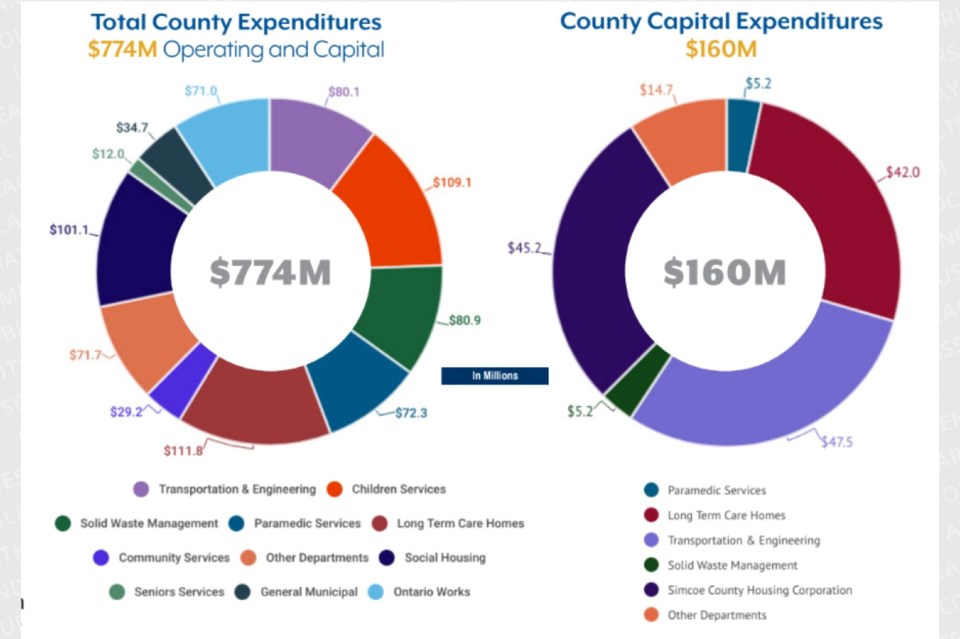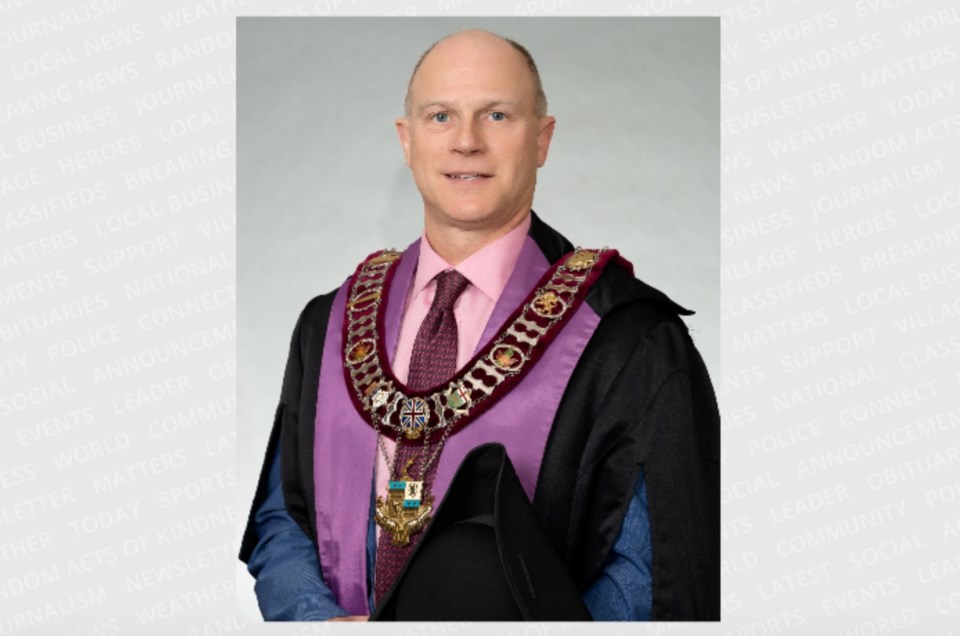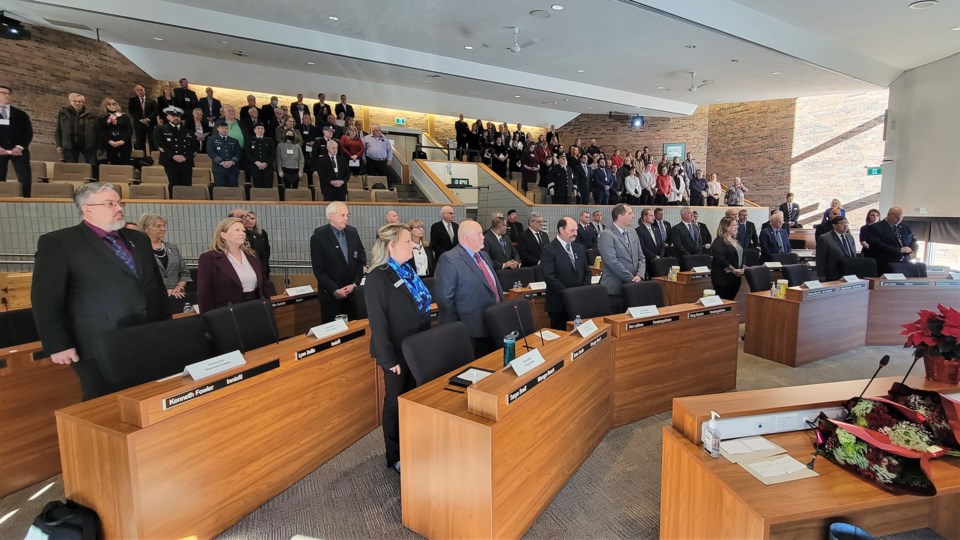Simcoe County residents will see a 3.7 per cent increase on the county portion of their municipal tax bill for 2024.
Council officially approved the county's $774-million budget during Tuesday’s council meeting. This includes a 1.7 per cent increase for operating and a two per cent increase for infrastructure and asset management on the county portion of their municipal property taxes in 2024.
About $212 million of the county’s budget comes from Simcoe County residential property taxes and the remaining amount from other funding streams.
The county’s 10-year affordable housing strategy, as well as long-term care, paramedic services, transit improvements and the Lake Simcoe Regional Airport, are a few of the “big-tickets items” in this year’s budget, Warden Basil Clarke told BarrieToday following the meeting.
“We have the 130 units we are finishing up mid-year and will have people moving in in Orillia. We have started construction on the 50 units in Bradford and we are hoping to start the units on Rose Street in Barrie,” he said.

The expansion to the Lake Simcoe Regional Airport's runway is also on the radar for completion in 2024, Clarke added.
“People are hurting now more than they ever have. Anything to do with social housing, the hub we are building there and affordable rent … We can’t keep up with the demand so we are committed to moving forward with these projects and we don’t want to miss a step.”
The airport, located on Line 7 in Oro-Medonte, is going to serve as the county’s “anchor” with regard to economic development.
“The potential of that airport is just outstanding,” said Clarke.
The 2024 budget also includes "strategic allocations" that enable the county to invest in services and assets such as infrastructure, long-term care, paramedic services, waste collection, transit, economic development, tourism, and enhancements to the many road networks in the region.
This increase to the levy equates to approximately $10.69 per $100,000 property assessment across the region.
In early days of discussions, councillors were looking at a much higher potential levy increase, which Clarke said was reduced thanks to some “behind-the-scenes trimming” by staff before bringing it back to the council table.
From there, county council was able to further trim the budget — taking it from a potential 4.2 per cent increase to the approved 3.7 per cent by taking out $1 million from the economic development reserve fund.
“That was money we were putting away every year for strategic land purchases when opportunities come along. There’s about $5 million in there right now … we thought there’s enough to get us through this year," the warden said.
Clarke said county residents will not be seeing service cuts in 2024.
“We didn’t want to cut services, because we know people need our services,” he said. “The demand on our services has never been higher.”
Clarke says he's happy with where the budget sits, but acknowledged that an increase of any kind is not typically welcomed news for taxpayers.
“I know the impacts inflation has had and I know many local municipalities … would love to come in at 3.7 (per cent) … when you look at what’s happening in other parts of Ontario," he said.

“With the amount of growth we’ve had and the demand that’s been put on our services I don’t think you could have gotten it any lower, not without cutting services," Clarke added. "It was about efficiencies, and we really did go above and beyond this year to find those efficiencies and keep it as low as possible.”
Clarke said the county had previously held a modest tax increase over the last few years in an effort to help residents as much as possible during the height of the pandemic — including a zero per cent in 2021. That ultimately reduced some of the county’s financial flexibility today, he noted.
“During those times, you run off your reserves, but then you have to top your reserves back up,” he said.
The county is still sitting below inflation rates for the last decade, Clarke added.
”That’s something you always aim for. We don’t want to follow these high inflation numbers that we’ve seen and that’s why we struggle so much to find these efficiencies — and we did defer some projects if that’s what had to happen, until the market stabilizes,” he said.
Given the current economic state, now is the time to be fiscally responsible, Wasaga Beach Mayor Brian Smith said during the meeting.
“The pressures that come onto local councils and this council are unbelievable, and those are not going to get better," he said. "Even though we have all the mechanisms in place to plan for the future … what we absolutely know today is that whatever we believe something costs today is not going to be the cost tomorrow. It’s going to be even higher."
Clarke said looking to the future, council’s job remains to deliver services as efficiently as possible.
“This is finding that balance, but still looking for the future and I am quite happy we’ve done that,” he said.
The financial impact of the provincial blue-box program and Bill 23 - Building More Homes Faster Act are not entirely known at this time and are expected to have significant impacts on future budgets.
2024 Budget Highlights:
Total county operating and capital expenditures for 2024 are $774 million ($614 million operating and $160 million capital), which includes the following:
• Long-Term Care Homes and Seniors' Services — $124 million
• Paramedic Services — $72 million
• Children's Services — $109 million
• Community Services — $29 million
• Social Housing — $101 million
• Ontario Works — $71 million
• Transportation and Engineering — $80 million
• Solid Waste Management — $81 million



